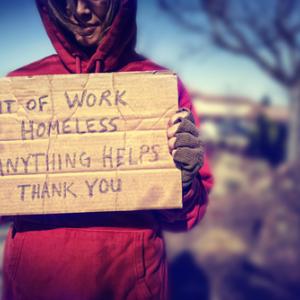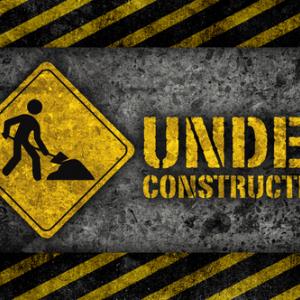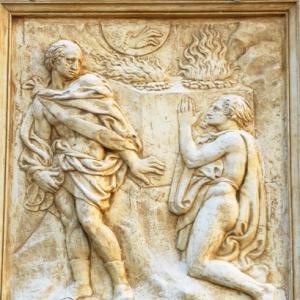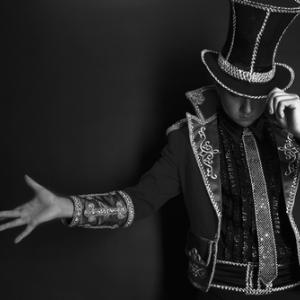Morf Morford considers himself a free-range Christian who is convinced that God expects far more of us than we can ever imagine, but somehow thinks God knows more than we do. To pay his bills, he’s been a teacher for adults (including those in his local county jail) in a variety of setting including Tribal colleges, vocational schools and at the university level in the People’s Republic of China. Within an academic context, he also writes an irreverent ESL blog and for the Burnside Writers Collective. As he’s getting older, he finds himself less tolerant of pettiness and dairy products.
Posts By This Author
Are You 'Good Enough'?
I don’t know about you, and the people you know, but most people I know who call themselves Christians are particularly proud of the certainty that they are ‘good enough’.
It’s an odd phrase when you think about it; in a world simmering with chaos, injustice and upheaval, oppression, poverty and human trafficking, in our cities filled with addiction and unrest, our prisons cramped and over-flowing, do any of us really believe that the best we can do is ‘good enough’?
Can many of us actually congratulate ourselves, or our faith communities for our impact on our neighborhoods, schools or cities?
In and Out of the Zoo
One time I took a group of people in the drug rehab program to the local zoo. Most of our group had been to prison – some for years. Most were felons. Most of the women had been prostitutes as well as addicts. Most of them had been homeless, had lengthy criminal records and had, as a group, used virtually every drug — heroin, meth, crack cocaine — and had used every deception, scam, or theft to acquire their drugs. In short, they had been desperate in ways and to a degree most of us could never imagine. If you think a hungry man will commit extreme acts for food to keep from starving, an addict will commit acts a hundred times more extreme. There are few acts an addict will not do.
And yet, few of these former addicts had ever been to a zoo.
One of these people, a woman in her mid-40s, couldn’t contain her excitement as we walked into sight of the resident animals. She shrieked and ran from exhibit to exhibit — until she saw the elephants. We happened to catch the trainer as he was giving a little question-and-answer time. This woman had endless, little kid-type questions about how elephants ate, slept, how they lived, and where they came from.
'There Should Be No Poor Among You'
There should be no poor among you - Deuteronomy 15:4
This is one of the few commands virtually all religious people easily – even eagerly – follow.
We just do it our own way.
The biblical and cultural context and overriding assumption is that those of us with means should contribute – willingly and without conditions – to those among us who, for whatever reason, are needy.
We are not to judge – or distance ourselves – from those who have little – or cannot pay us back. In fact these are the ones Jesus commands that we – and by extension he – should invite to a banquet (Luke 14:12-14).
But we seem to have ‘no poor among us’ – we do our best to exclude, ignore, or even ban them when we do see them.
Is a Messiah’s Work Never Done?
The Jews believe that the Messiah is yet to come.
Christians believe the Messiah is coming back.
Those of other – or no – religions haven’t noticed much difference and don’t really care.
But all would agree that there is plenty of work left to be done.
We, by any standard, are far from an age of any Messiah — an era of justice, peace, and restoration seems as distant or alien or even incomprehensible as a blockbuster sci-fi film.
But perhaps, in some odd way, that is the point.
The Lord Will Destroy the Destroyers of the Earth (Rev. 11:18)
We in our era have accomplished something no other civilization would have considered possible — or desirable. We have taken human wastefulness and self-destruction to never-before-seen levels and we have distorted our scriptures to justify even celebrate — our own destruction.
Whether it is fracking (with its own legacy of toxic waste) the Keystone XL Pipeline (with its virtually guaranteed oil spills across prime farm land) accompanied by the largest population ever seen on the face of the earth — with its attendant garbage and sewage — we are seeing threats to our climate, food supply, economy, and quality of life on a level never seen before in human history.
Historically, theologies (and philosophy) have put a brake on human avarice, violence, and unbridled destruction of the environment.
Reflection and restraint, for millennia, have been the twin pillars of historic conservatism.
Not now.
Ariel Castro: 'I Am a Sexual Predator. I Need Help.'
Every family involved, every neighbor, even those of us who look on in horror, will be forever stained by this horrific, sustained act. If any human act warrants eternal punishment, this clearly does. As much as I consider the death penalty barbaric, in this case death seems far too merciful. The perpetrator will never breathe a single breath free of shame and disgrace. The sin, by any standard, is beyond the pale. The case makes me wonder what judgement, punishment, and mercy might even mean. And like everyone else, my first impulse is to put as much distance as I can between this ‘sin’ and my own.
But we lie to ourselves if we imagine that our sin is no less ugly in the eyes of God. Is my, or your sin, really so different?
'Created to Do Good Works?'
Seen on a rural hillside: “Under Construction.”
Someone had added, in letters almost as large, “No equipment, no budget, no crew and no work, but we have the sign.”
For the vast majority of Christians, this sign sums up their philosophy of discipleship.
In their determination to not be ‘saved by works’ they have cultivated a historically isolated, theologically sterile, spiritually impotent ‘faith’ that I can only describe as ‘Christian inertia.'
In this cultivated obliviousness they have forgotten, perhaps deliberately, that we are “created to do good works in Christ” (Ephesians 2:10).
They have somehow come to believe that ‘being a Christian’ is all about having the sign; being transformed (Romans 12:2) by the living word of God, far from being a thriving daily reality, has become an abstraction reduced to a bumper sticker or slogan.
A Man Had Two Sons — Luke 15:11
It’s one of the deepest and most enduring themes of the Bible; from Cain and Abel, Isaac and Ishmael, Esau and Jacob, and many more — the two sons, with jealousy, strife, and even murder between them, and almost always, the younger brother takes the glory – or the blame – for the acts of the older brother.
We see it again in the Boston Marathon bombings – the elder brother portrayed as cynical and brutish, while the younger brother, taking the blame, is shown as charming and innocent.
Will He Find Faith?
C.S. Lewis described himself as a dinosaur as he lived in a cultural landscape that seemed to change before his eyes.
I don’t feel like a dinosaur, but I do feel like a disembodied voice crying in the wilderness as I struggle, like a fish swimming upstream, to believe that the Gospel is real and solid and still matters.
It’s not that cynics and agnostics have convincing arguments – though some do.
And it’s not as if Faith itself has lost its power and edge – because it hasn’t.
Perhaps it’s true in every age, but it certainly seems more true now, that many of those who call themselves believers, believe and live as if they believe a different Gospel altogether.
The contradiction is so thorough, it must be deliberate.
The Hand Is Quicker Than the Eye
“The hand is quicker than the eye” is a traditional proverb and organizing principle of every practicing magician. There is no actual “magic” involved in a magician’s act – it is pure deception and distraction.
A high degree of finesse and showmanship combine to make appealing, mysterious and captivating.
Learning how a trick is done ruins the act by deflating the anticipation and element of surprise.
As much as we’d rather not think so, politics is very much the same.









